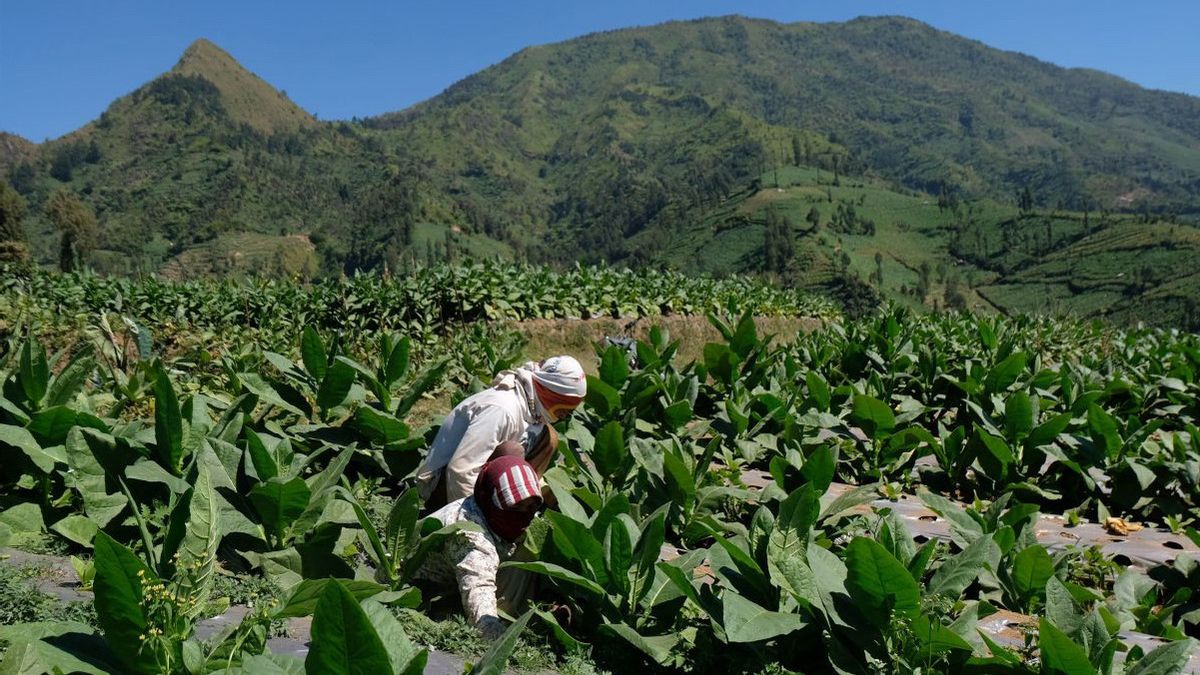JAKARTA The Indonesian Employers' Association (Apindo) represents more than 20 tobacco products industry associations (IHT) and related sectors rejecting a number of articles in Government Regulation (PP) No. 28 of 2024 concerning Health, particularly the Security of Addictive Substances and Draft Regulations of the Minister of Health (RPMK) on the Security of Tobacco Products and Electronic Cigarettes.
Deputy Chairperson of Apindo Franky Sibarani said that problematic articles in PP 28 and RPMK are feared to create instability in various related sectors, including retail, agriculture, and creative industries that depend on the IHT ecosystem.
"The industry is currently very concerned. The regulations made should not kill the tobacco industry and related sectors," he said in his statement, Wednesday, September 11.
In addition, cross-sectoral associations also highlighted that policies taken without considering the balance between health protection and economic impacts could disrupt the stability of the national economy.
Thus, APINDO together with more than 20 elements of the tobacco products industry and other stakeholders urged that the process of drafting and implementing PP 28 and RPMK be more open and involve all parties affected comprehensively, in order to realize a balanced and proof-based policy.
"We do not reject the regulations, but this regulation must be prepared and implemented fairly and in a balanced manner, given the latest economic developments and the complexity of the position of the tobacco products industry in supporting the national economy," he said.
"We also support the commitment of tobacco products industry players to prevent access to cigarette purchases by children and APINDO invites all stakeholders to jointly increase education and literacy in the prevention of smoking to groups under 21 years of age," he added.
Franky also underlined, the importance of the government in deepening that the condition of Indonesia's socio-economics is very different from the tobacco industry which absorbs a lot of labor, so it cannot only reflect on certain countries to simply imitate their policies without deepening.
SEE ALSO:
Some of the important points that are the main aspirations are:
1. Cancellation of provisions regarding the standardization of plain packaging or packaging (lain packaging), which is not in line with and exceeds the mandate of standardization regulation in PP No. 28 for tobacco products and electronic cigarettes. APINDO emphasized that this policy has the potential to reduce the competitiveness of local products and actually open up opportunities for increasing illegal cigarettes.
2. Rejection of tar and nicotine levels in tobacco products, which are considered ineffective in reducing cigarette consumption, will actually hit the industry significantly. The too low threshold determination for tar and nicotine will have a negative impact on the entire industrial supply chain, from tobacco farmers to cigarette factories. This risks increasing tobacco imports and harming domestic production, as well as triggering the emergence of illegal products with uncontrolled levels.
3. Rejection of the zoning ban on the sale of tobacco products and electronic cigarettes within a radius of 200 meters as well as the prohibition of outdoor advertising within a 500 meter radius from educational facilities and places of worship for business actors that are currently operating. Strict purchase age restrictions have been imposed. This additional zoning will only increase the burden on existing business actors without having a real impact on consumption control. Banning it in total without considering context will only reduce the visibility and benefits of the legal industry, while illegal cigarettes will get a larger market share.
The English, Chinese, Japanese, Arabic, and French versions are automatically generated by the AI. So there may still be inaccuracies in translating, please always see Indonesian as our main language. (system supported by DigitalSiber.id)
















